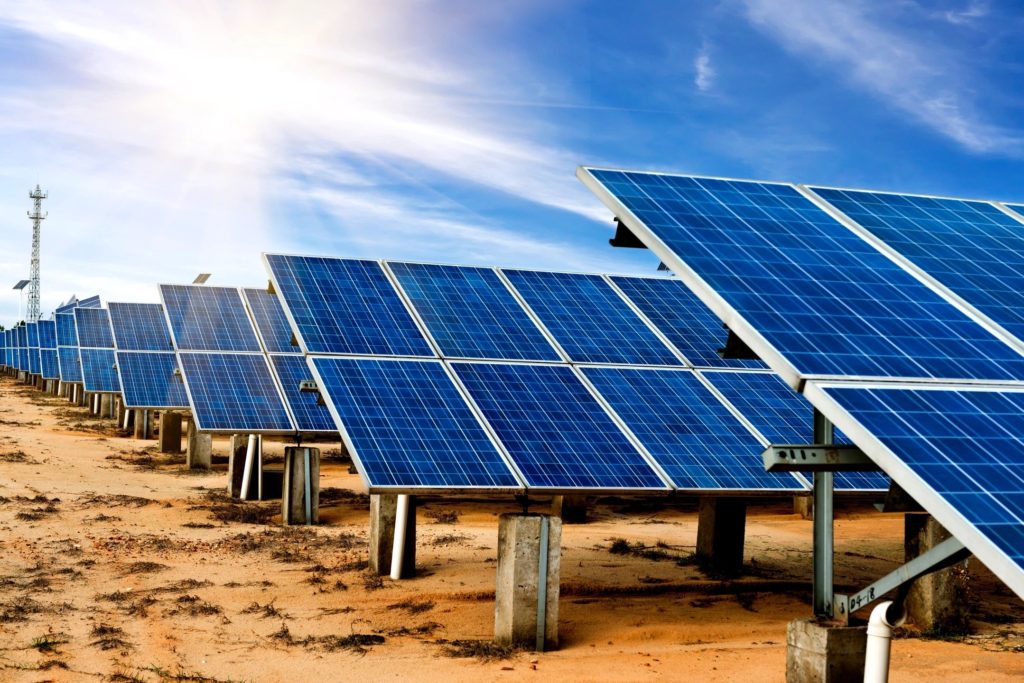The Richmond Times-Dispatch editorial board gives a rather enthusiastic endorsement of the Grid Transformation and Security Act earlier this week, one that certainly measures out the complexity and enormous undertaking the modernization project will undoubtedly undertake:
Late last week a replacement package was introduced. Dominion’s critics began attacking it the moment it was dropped, which says more about their reflexive hostility to the power company than it does about the package itself. Everyone needs something to be against, apparently, and a big utility company makes for a convenient foil.
Perhaps most of all, this flummoxes me. Or perhaps it doesn’t, as the proxy war between Northam and Perriello demonstrated during the Democratic gubernatorial primary, the environmentalist camps are well-funded and well heeled indeed.
[T]here’s little in it to justify the knee-jerk reaction it has produced in some loud quarters. The State Corporation Commission will sign off on grid-transformation investments, and if Dominion does not plow any excess profits into grid upgrades, the SCC can order a refund. Upgrading the grid is not only a genuine good, it is an absolute necessity — for reasons of both infrastructure security and technological advancement. It also will redound to the benefit of customers by enabling Dominion to fix outages more quickly — often before customers know about outages themselves — and eventually to head off imminent outages even before they occur.
…and in one tight and succinct sentence, the editors of the RTD hammer home the very need for upgrading Virginia’s energy grid, not just for existing customers, but when we talk about Virginia as an international port of call at Hampton Roads? An absolute necessity.
Which frankly, is why Delegate Lee Ware (R-Powhatan) spoke some truth about the complexity of the GTSA — because it is a dense bill and it does have a lot of moving parts. From the Washington Post:
“Ratepayers are the people that we are here to look out for,” Ware said. “All of us benefit from a healthy utility,” he added, but “at the same time I think we have a duty to ensure that we chart an honest and broadly understood path forward.”
Ware illustrated his point by reading aloud dense language from the most sweeping measure, the bipartisan HB1558, which was unveiled last Friday. That measure would restore the state’s authority to oversee rates charged by the utilities, and would rebate several hundred million dollars to customers derived from excess profits the companies made during the rate freeze.
Though the WaPo headline was — shall we say — alarmist (as in, it did use the word ‘alarm’) there is broad recognition that Dominion Energy is committing itself to two paths in the post-Paris Climate Agreement era: (1) that reducing costs to ratepayers is an imperative, and (2) that providing a modern, 21st century energy grid is the single most vital building block to Virginia’s economic renaissance we could afford.
The days of being pennywise and pound-foolish when it comes to energy security and energy rates is over. Running long-outdated coal plants in Yorktown during brownouts is a non-starter, and the move to energy efficiency is not a painless one.
There are a couple of areas of focus here. First and foremost is a hardening of our electrical infrastructure from natural events such as hurricanes. Over the last few years, $53 billion has been spent on undergrounding wires and other infrastructure improvements to bring electricity up much faster than otherwise. Hardening our electric grid from hackers and solar events — energy security for those who understand the issues — is critical given Hampton Roads Shipbuilding’s role for national security.
Yet perhaps one critical point of observation is the capture of solar energy. Over the last decade, there have been tremendous advances in solar energy capture, with efficiency ratios far above what the old solar cells used to be able to convert in the 1970s. Yet solar energy only lasts so long as the energy source remains available — the sun. When we are overcast or at night? Energy capture remains quite the investment, and in winter months where temperatures can be unseasonably cold, a premature or Potemkin-village effort on solar could prove either insufficient or expensive (and likely for ratepayers, both) unless core investments are recognized and made up front.
The legislation crafted by Democratic and Republican leadership is complex, if for no other reason than the solutions are substantive. As Dominion CEO Robert Blue mentions specifically in his RTD editorial:
Introduced in both the House of Delegates and the Senate with bipartisan support, the legislation offers a new mechanism — subject to rigorous regulatory oversight — to transform the electric grid, promoting the development of renewable resources and enabling the system to better handle the power they generate. The legislation would pave the way for a more secure, reliable, and efficient grid. And its goals are consistent with those of our customers: In a survey conducted in May 2017, more than 80 percent of the customers contacted endorsed modernizing the electric distribution system to support efficiency, reliability, security, and renewable energy.
The editorial is worth a read in full. The good news in this story is that all sides seems eager and encouraged to move forward in a deliberative manner that invests in cheaper, cleaner energy resources — not just for Virginians today, but for Virginia’s economic future moving forward.

